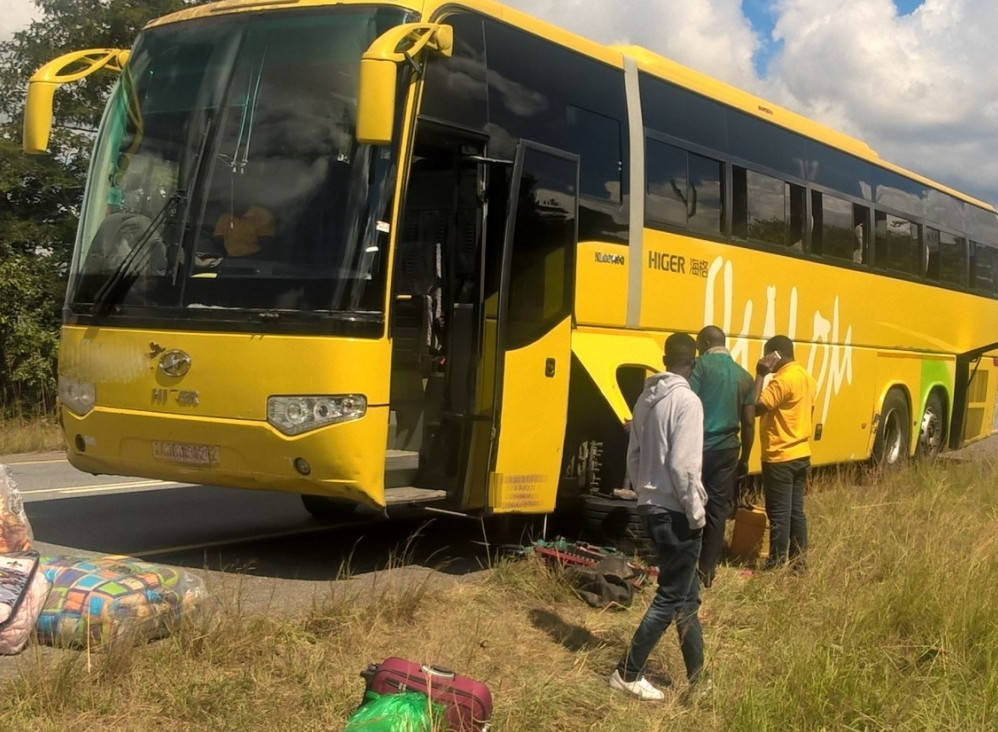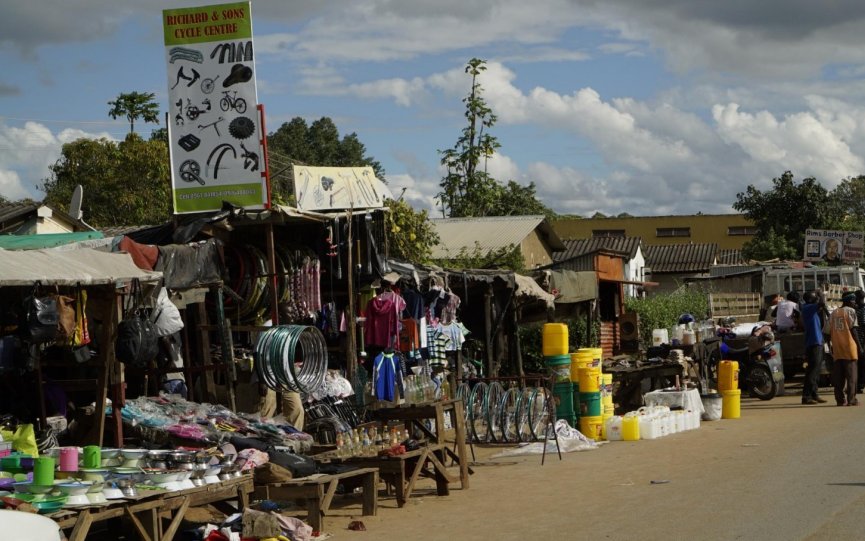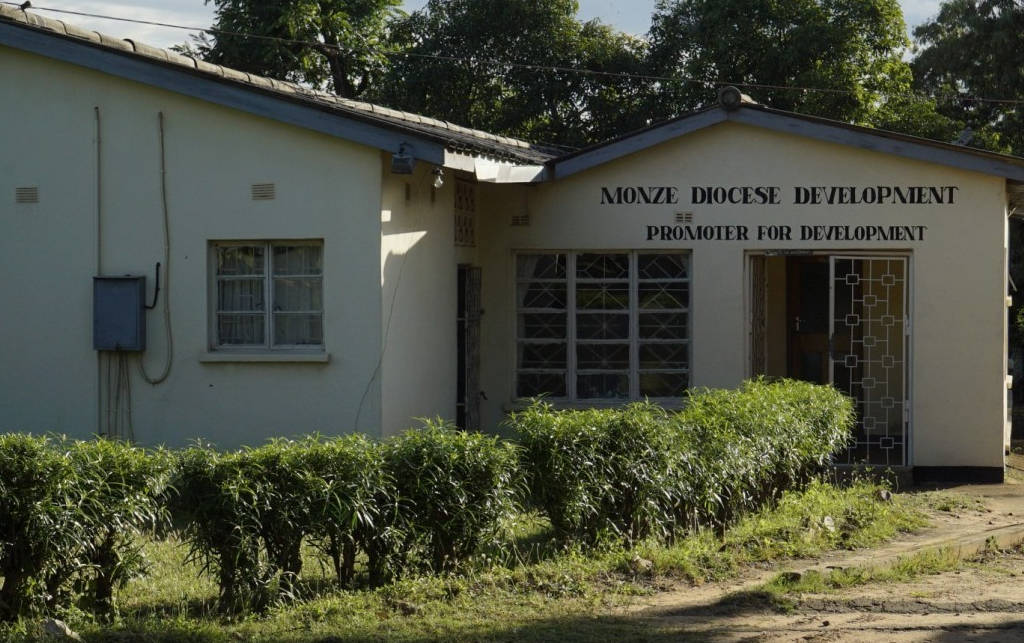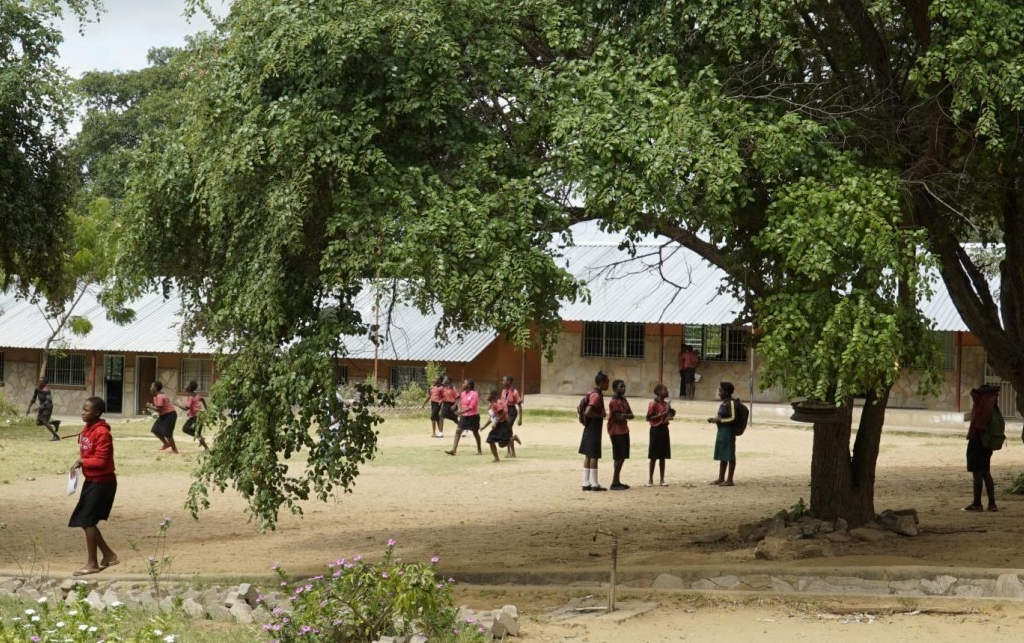Blog
Voyage Report 2017
Between April and May we* have been on a private trip to Zambia and have taken the opportunity to make first-hand impressions about the goings-on. In this report, we would like to share our findings.
*two of the project’s initiators
Introduction
This trip held a lot of teaching moments about patience for us. The phrase sit around and relax a little bit has been common and forced us out of our usual busy ways. Time to think about the big picture and nothing in particular…
 Long waiting times do not happen exclusively on bus stops
Long waiting times do not happen exclusively on bus stops
Zambia
The most prominent difference to our last journey and the summer schools was the season: dry period then, rain season now - even though the dry season was supposed to have started by our arrival, but climate change might have something to do with that.
After some dry years, the heavy rains might be a whole different kind of problem for farmers. The 2017 harvest still will be better than the years before.
 Zambia, the real Africa in the sun?
Zambia, the real Africa in the sun?
Growth of a different kind can be watched in the capital Lusaka. The city has spread widely in the last years with whole (upper) neighbourhoods developing on the outskirts. The shopping mall density, despite targeting the wealthier clientel, has increased as well. Payments can be done easily by credit card and the next ATM is never far away. The Kwacha has lost compared to the Euro, being soled at 1:10 instead of 1:7 (2013). The price level for gasoline is the same as in Europe and the electricity costs have sky-rocketed (+75% in 2017 alone).
On a positive note the tickets for the sights we visited, like museum and Victoria Falls in Livingstone, come at a much reduced price for locals (though admittedly they used to be free).
A toll on the highway poses an additional burden on the people. The sign states the use of the money to maintain the road; the condition of this road is unchanged (bad) in comparison to 2013, but the long construction sites between Turnpike, Monze and Chirundu are gone.
The Monze Market, once overflowing with colorful chitenge cloth, seems to have specialized on plastic tools, bycicle equipment, electronic gadgets and clothes (the cheap ones from collections from Europe). If this change comes from a cloth market disrupted by dumping imports or - as one salesperson speculates - a change in fashion, we cannot say.
 The market in Monze
The market in Monze
After the arrest of the opposition’s presidiential candidate and a ban on public discussions on that topic, the political situation in Zambia sadly seems converge toward the state of global politics.
As for tourist highlights we wholeheartedly recommend a tour on the Zambezi river and a visit to the Victoria Falls. At the end of the rain season they are particularly impressive - and, yes, wet.
 The Victoria Falls at the border triangle - during rain season impressive even from afar
The Victoria Falls at the border triangle - during rain season impressive even from afar
Schulfee
The project Schulfee is in good state. Before we came, the numbers of 150 pupils supported in 2016 have already exceeded all our expectations. After a meeting and evaluations with the Development Department and participants we conclude that the mode of operations is working very well.
 There it is: the entrance to the office of our partners from Zambia
There it is: the entrance to the office of our partners from Zambia
The past years showed that even when during the year we are sometimes missing information on the specific goings-on in Zambia, detailed regular reports can be counted on, including at least financial information and the anual report on the support. This matieral suffices to maintain information and fundraising in Germany. Challenges might come up in the future, if and when there are staff changes.
The way of dealing with the schools directly when it comes to payments and of involving the schools and communities in the selection process seems prudent. This is the shared opinion of the evelopment Department and ourselves after the discussions, even though some criticism has been made by schools and communities:
-
Father Emilio from the catholic parish in Chirundu, that runs the Chirundu Primary School (classes 1-7) mostly on collection during church services, sees this kind of support reasonable only for classes 8 and higher. He argues that pupils will not be able to appreciate the support earlier. He suggests making payments for the school as a whole instead of individual pupils, so that the money benefits all pupils through new learning material and other essential needs.
-
Mrs. Tembo, head of Chirundu Secondary School, on the other hand, does not have object. When asked about further improvements, she mentions the funding of new learning matieral or devices such as computers.
We are not convinced by these suggestions, however. An allowance for a school, for their convenience, will be much harder to monitor and increased danger of mis-use. Also it does not fit with the project’s vision, that is not to fund a school’s operation, but to support tangible pupils in immediate need. While we do not deny the urgent necessity of the schools (only half of the teachers salaries of Chirundu Primary are payed by the government) and while we do acknowledge the fact that high school fees arise from a general lack of school funds, Schulfee does not have the capacities to deal with such a level of development aid.
Nevertheless we feel encouraged by the criticism to continue thinking about ways to enhance our support beyond simple payments. As long as the main vision of the project is not forgotten, some ideas like the solar lamps might be put into practice.
 During the vacations the compund of Chirundu Primary school serves for leisure activities
During the vacations the compund of Chirundu Primary school serves for leisure activities
Another form of support that has been in discussion for some time now is the idea of sholarships, extending the support from a single school year towards a more prolonged benefit for the whole upper school. Attempts to an implementation unfortunately failed so far (as stated in the 2015 report and the discussions with Monze High School).
Continued support, while strictly not yet implemented, can already be observed in practice. For instance, the support for the five grade 8 pupils from Chirundu Secondary came into being because they already have been supported in class 7 and then could not afford the higher fees for class 8.
This example also demonstrates a learning effect in the selection process for us: one of these supportees still dropped out of school after having been married. That might have been foreseeable during the time of selection.
In conclusion, our visit did not reveal any big new challenges that the pupils and their families are facing, giving us no new stories for the website (gladly so). Still we are reminded that the existing problems will take a long time to overcome, even if that makes the reports seem a tiny bit repetitive over the years.

